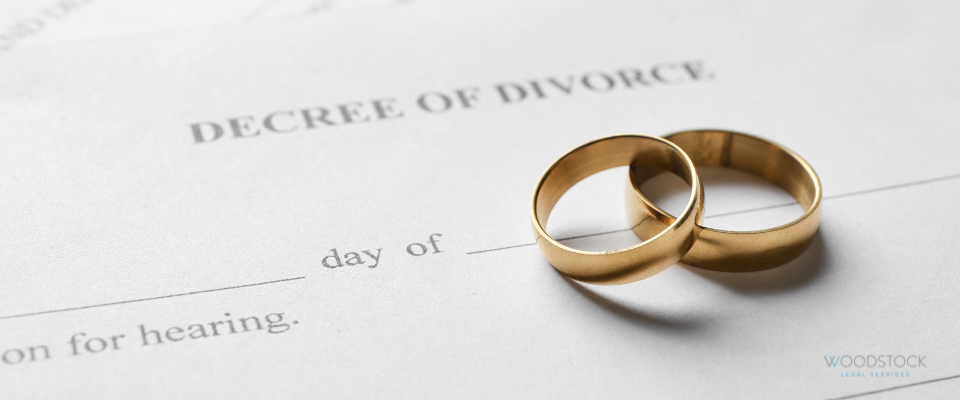What Virtual Witnessing means for making a Will
What the law says
New Paragraph

What the law says
Section 9 of the Wills Act of 1837 sets out the requirements for making and witnessing a Will as follows:
No Will shall be valid unless:
(a) it is in writing and signed by the testator or by some other person in his presence and by his direction; and
(b) it appears that the testator intended by his signature to give effect to the Will; and
(c) the signature is made or acknowledged by the testator in the presence of two or more witnesses present at the same time; and
(d) each witness either attests and signs the Will or acknowledges his signature in the presence of the testator (but not necessarily in the presence of any other witness), but no form of attestation shall be necessary.
The person making the Will also needs to have ‘testamentary capacity’. Which means they need to fully understand what they are doing and have capacity to say as much. And they aren’t being influenced or coerced by anyone.
For witnesses, the current law allows an executor of the Will to be a witness. However, a beneficiary or the spouse/civil partner of the Will maker cannot. Essentially because it’s a conflict of interests.
‘Mature minors’ are allowed to witness a Will, but blind people cannot. There is a general assumption that a witness should also have testamentary capacity.
Additionally, the Act states that the witnesses have a ‘clear line of sight’ of the Will maker signing the Will.
Equally the Will maker is required to have ‘clear line of sight’ to the witnesses when they countersign.
The pandemic and subsequent lockdown made that impossible. As a result, all Wills in process were effectively prevented from being issued.
The problems this creates are obvious and has caused no shortage of anxiety for families up and down the country. Not least for those who up to now have been shielding or are otherwise vulnerable.
Which is why the law had been amended to accommodate these unprecedented times…
Making Wills using Video Conferencing Technology
The amendment - which has been backdated to the 31st January 2020 - will make it legal for Wills to be witnessed over video conferencing technology. The legislation will stay in place until at least 31st January 2022.
The way this will work is the Will maker (you) will sign the Will in full view of your witnesses. They can be in one location or two separate locations, it doesn’t matter. Prior to signing you should confirm that the call is being recorded and that the witnesses can clearly see you and the document.
It’s really important that they can see you physically writing your name, not just the back of your head. If the witnesses are not known to you, they should ask you to prove your identity by holding up a passport or driver’s license to the camera.
Once signed the Will maker should hold the document up to the camera for confirmation. It is also beneficial to have that on the recording too.
The next step is to get the document to your witnesses as quickly as possible. While delays can sometimes be unavoidable, the ideal is no more than 24 hours.
Once the witnesses have the Will the process is repeated. As before, the Will maker must be able to clearly see the witness/es signing their names. Again, they should hold the signed document up to the camera to confirm and for the benefit of the recording.
If the witnesses live in different locations (which is likely) then this process will need to be repeated again. In all instances both witnesses must be present on the call.
The type of video conferencing or device used is not important, as long as the person making the Will and their two witnesses each have a clear line of sight of the writing of the signature.
To reflect this, the Will maker could use the following example phrase:
‘I [first name, last name], wish to make a Will of my own free will and sign it here before these witnesses, who are witnessing me doing this remotely’.
Witnessing pre-recorded videos will not be permissible - the witnesses must see the Will being signed in real-time.
The person making the Will must be acting with capacity and in the absence of undue influence as per the existing law.
If possible, the whole video-signing and witnessing process should be recorded and the recording retained. This could be of use to the court if the Will is ever challenged.
Other things to consider is ensuring that all parties are clearly visible. Many video conferencing technologies come with filters, backgrounds and other features that can distort or alter the appearance of the individuals.
These should be switched off as it could cast doubt on who was present and/or witnessing the Will signing.
Equally deep fake technology is becoming both more sophisticated and commonplace. It is essentially for all parties to take all reasonable steps to ensure that all parties are who they say they are. There is no government guidance on that but if you are in any doubt about the identity of the person on the call, end it immediately.
To do anything less could expose you to fraud or at the very least render the Will null and void.
Is drawing up a Will hard?
No, with a but. While the process of drawing up a Will is relatively simple, it can be difficult to decide how to apportion your estate.
Not least because you don’t know when you’ll die or what your estate could be like then. Also, many people find it quite an emotional experience as we humans don’t like to be confronted with our own mortality. In fact our brains have become highly adept at avoiding the topic or blocking the thoughts out altogether.
While this serves us very well day-to-day, it can make the subject of our deaths and how our family will cope after the fact very difficult.
The first thing to do is acknowledge that it’s a difficult discussion and one that should include your partner or spouse. Especially as your passing will impact on them most of all.
Value your estate
This essentially means determining the total value of your assets and debts.
Assets typically include:
- Your home and any other property owned
- Bank and building society accounts
- National savings such as premium bonds
- Insurance policies (life assurance or an endowment policy)
- Pension funds (including lump sum payments on death such as stocks and shares)
- Jewellery
- Antiques
- Other furniture
- General household contents
- Personal belongings
- Motor vehicles.
Debts can include:
- Mortgage
- Credit cards
- Store cards
- Bank overdraft
- Loans and finance
- Equity release
It’s advisable to get your assets valued regularly as the value of them changes over time. For example, a car can depreciate over time, but jewellery and antiques tend to do the opposite.
Divide your Estate
When dividing up your estate among your loved ones it’s incredibly important to be completely clear about what you want to happen to it.
Ambiguity can cause arguments, disputes and break up families. The loss of a loved one can have a profound impact and make people act irrationally.
When dividing up your estate you need to consider:
- Who do you want to benefit from you Will?
- Do you want to give specific guests to anyone?
- Where the residue of your estate is to go (assets left after all your debts, expenses and taxes etc have been paid)?
- What do you want to happen if any of your beneficiaries die before you?
Giving to Charity
Many people choose to leave a portion of their estate to charity as a gift. If you wish to do so you’ll need to include the charity’s full name, address and registered charity number.
If any of this information is missing or incorrect it could mean the charity doesn’t receive the gift. Or it could go to the wrong organisation by mistake.
Choose your Executors
Executors are the people who deal with distributing your estate. They can be an independent third party or a close friend or family member.
Being an executor holds a lot of responsibility and can be a lot of work so choose your executors carefully. It needs to be someone you can trust enough to enact your last wishes to the letter.
Write your Will
You can approach your Will in one of several ways. The first is you can write it yourself. Templates are available online, however, it still needs to be written in the correct way and still go through a witnessing process.
It’s surprisingly easy to write a Will that isn’t legal so at the very least you should get legal advice before going down this road.
An alternative is a professional Will writer. Professional Will writers aren’t solicitors and aren’t regulated the same way. They should be a member of the Institute of Professional Will Writers.
However, again, you will still need your Will to be checked by a solicitor and witnessed accordingly.
It’s best approach in almost every circumstance is to work with a solicitor. Solicitors who specialise in Wills and probate are, by definition, experts.
They can make the entire process easy and straightforward because they know exactly what they are doing. This takes the stress and pressure out of what is a difficult and emotional experience.
A solicitor can review and verify the legality of the Will as well as help you arrange the witnessing of the document.
Signing the Will
Finally signing the Will. Under normal circumstances this is two people who physically witness the signing of the Will and then you do the same for them.
A witness cannot be a partner or spouse or a beneficiary (unless they are the executor).
Writing a Will doesn’t have to be stressful. Woodstock Property Law can support you through the process and help give you the reassurance that your loved ones will be taken care of.
What’s more, we use the latest video conferencing technology which means you can work with us while staying safe.
To find out more about how we can help you with your Will, get in touch with us today and a member of our team will respond within 24 hours.
Contact Us
Contact Us
News & Insights










